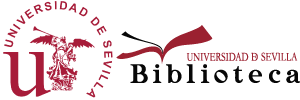Contribuciones de David Hume y de Jean Nicod a una concepción de las probabilidades sin ontología
Some Contributions of David Hume and Jean Nicod to a Conception of Probabilities without Ontology
Abstract
The present article is an analysis of the concept of probability. In order to do this, I consider the conjunction of the points of view of David Hume and Jean Nicod. It is clear for both of them that probability is quite independent from any substantialist metaphysics, proclaiming thus that probability is not a matter of ontology. Hume considers that the Newtonian rationalism contributes some infallible truths, whereas, on the contrary, commonsense knowledge produces only probabilistic explanations. Nicod criticizes the logic of the inductivist methodologies proposed by Francis Bacon and John Stuart Mill who pretend to establish certainties in knowledge. Hume and Nicod have a tendency to adopt a pragmatic conception of knowledge.
Downloads
References
BACON, Francis, Novum Organum, Losada, Buenos Aires, 1949, p 52
MILL, John Stuart, Système de logique, Pierre Mardaga. Bruxelle, 1988, p. 353.
POIRIER, Rene, Remarques sur la probabilité des inductions, Vrin, Paris, 1931, p.14.
KEYNES, John Maynard, A treatise on probability, Mac. Millan, London, 1921
RUELLE, David, Hazard et Chaos, Odile Jacob, Paris, 1991, p. 39
PENELHUM, Terence, Human Nature and Truth: Hume and Pascal, Lumen,12, 1993, p. 45–64
HUME, David, Investigación sobre el entendimiento humano, Alianza Editorial, Madrid, 1988, p.188
HUME, David, Tratado de la naturaleza humana, Orbis, Barcelona, 1984, p. 335.
HEMPEL, Carl, Éléments d´épistemologie, Armand Colin, Paris, 1972, p.
BUNGE, Mario, Teoría y realidad, Barcelona: Ariel, 1972, p. 75.
CHIRPAZ, François, Hume et le Procès de la Métaphysique, Beauchesne, Paris, 1989, p. 52.
CLÉRO, Jean Pierre, Hume, Vrin, Paris,1998, p. 134.
MALHERBE, Michel, La philosophie empiriste de David Hume, Vrin, Paris, 1992, pp. 7-8
BLACK, Max, Inducción y probabilidad, Cátedra, Madrid, 1984, p. 20































